
Recently a study from the Institute of Neuroscience, Shanghai Institutes for Biological Sciences showed that the protein kinase LKB1 regulates polarized dendrite formation of adult hippocampal newborn neurons through asymmetric distribution of Golgi apparatus.These findings provide new clues to the subcellular mechanism of LKB1’s action.
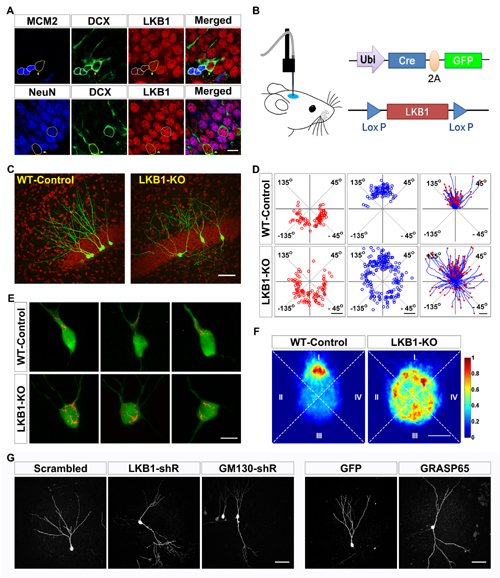
Dr. Xu Zhang was invited to the 5th Asian Pain Symposium in Japan from December 17th to December 21st, 2013. During the symposium, Dr. Zhang gave an invited talk entitled ”Role of FXYD2, γ subunit of Na+,K+-ATPase, in inflammatory pain”.
The 2013 ION Annual Meeting was held at the SIBS Lecture Hall from December 26th to 27th, 2013. Forty-seven ION researchers, including graduate students, postdoctoral fellows and research associates, presented their recent works. New faculty members introduced the research directions of their respective laboratories.
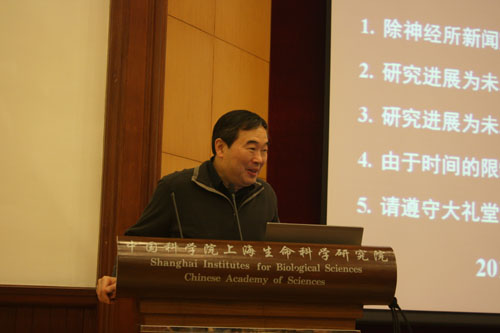
Recently, a research team (WANG Xudong, CHEN Cheng, and ZHANG Dinghong) from the laboratory of Dr. YAO Haishan at the Institute of Neuroscience, Shanghai Institutes for Biological Sciences showed that V1 neurons exhibit shorter response latency in the desynchronized brain state than in the synchronized state.
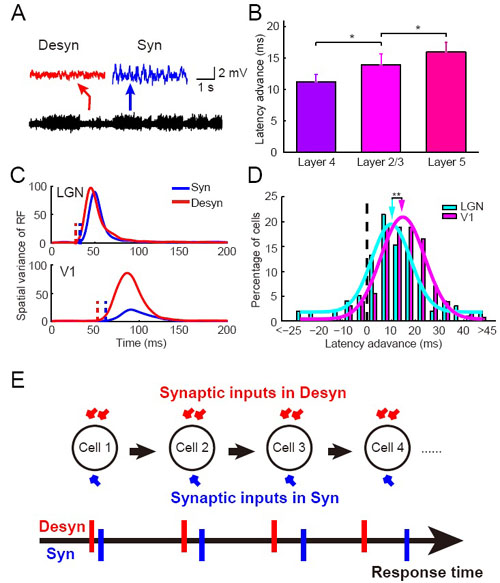
Dr. Jiulin Du was invited to visit the Institute Pasteur, l'Ecole Normale Supérieure and Curie Institute of France during Nov 25 – 30, and gave three talks entitled “Functional crosstalk between resting microglia and neurons”, “Neuronal NMDA receptors regulate brain vascular development” and “A functional module gates visuomotor transformation”.
Mental retardation is a neurological disorder typically associated with brain malformation and intellectual disability. There is increasing evidence showing that mutations on many X-linked genes can lead to different types of mental retardation. Thus studying their function provides a means to understand the physiology and pathology of the neural system.
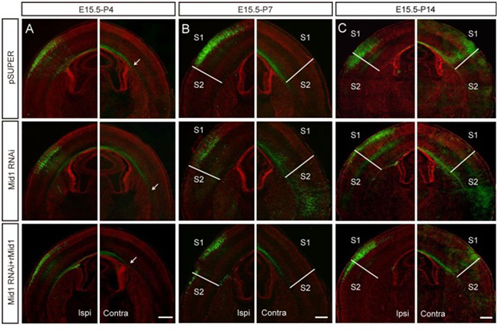
Dr. Jia-Wei Zhou was invited to attend the 20th East Asia Joint Symposium in Japan from November 7th to November 9th , 2013. During the symposium, Dr. Zhou gave an invited talk entitled "Role of dopamine D2 receptor in the control of neuroinflammation".
On August 30, 2013, Dr. Hailan Hu’s research group published a research report entitled "βCaMKII in lateral habenula mediates core symptoms of depression" in the journal Science. The authors found the new molecular mechanisms underlying the hyperactivity of habenula in depression and identified new molecular targets for gene therapy of depression.

Dr. Xu Zhang was invited to attend International Narcotics Research Conference in Australia from July 13th to July 20th, 2013. During the conference, Dr. Zhang gave an invited talk entitled “Opioid receptor trafficking and interaction in nociceptors and its role in opioid tolerance”.
Dr. Xu Zhang was invited to attend the 8th International Conference of Neurons and Diseases in Singapore from July 1st to July 5th, 2013. During the conference, Dr. Zhang gave an invited talk entitled "The function of FGF13 in nerve system".
On Jul 1, 2013, Dr. Aike Guo’s research group published a research report online entitled "Transformation of odor selectivity from projection neurons to single mushroom body neurons mapped with dual-color calcium imaging" in the journal PNAS. The authors found a scaling relationship between the average synaptic strength of the PN terminals and the total number of PN terminals a single KC received.
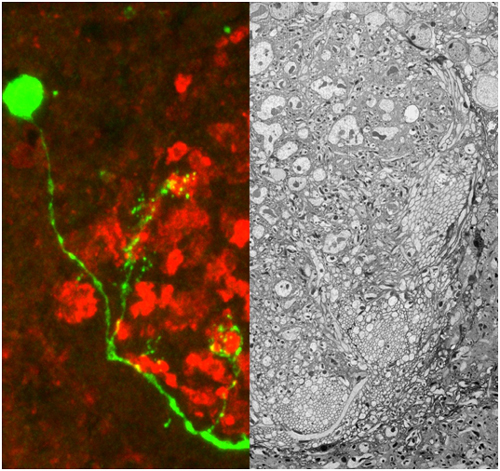
On June 28, 2013, a research article entitled "Axon position within the corpus callosum determines contralateral cortical projection" was published online in PNAS. This work was mainly carried out by graduate student Jing Zhou under the supervision of Dr. Mu-ming Poo.
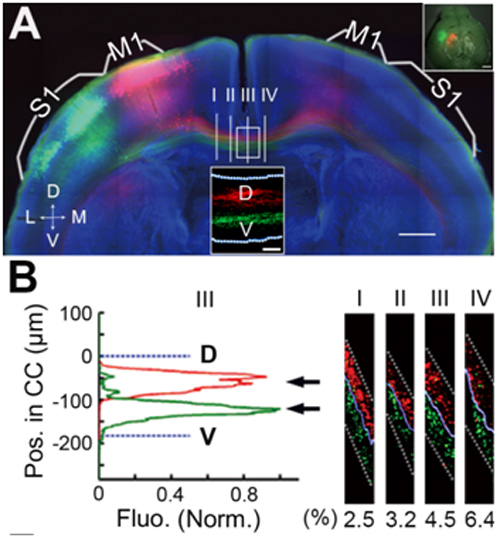
On June 26, 2013, The Journal of Neuroscience published online a research article entitled "Tlx3 Controls Cholinergic Transmitter and Peptide Phenotypes in a Subset of Prenatal Sympathetic Neurons". This work was mainly carried out by Tianwen Huang and Jia Hu, under the supervision of Dr. Leping Cheng.
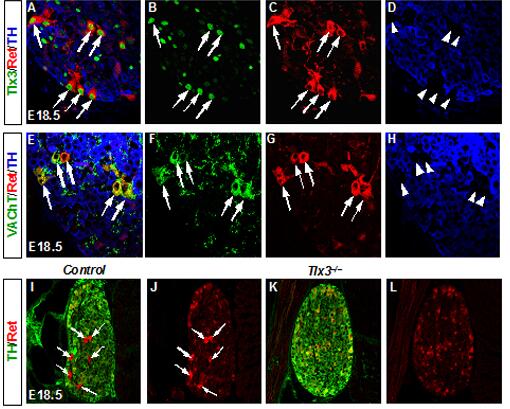
On June 17th, 2013, a study from the Laboratory of Neural Signal Transduction at the Institute of Neuroscience, Chinese Academy of Sciences, was published online in PNAS as a research article entitled "Canonical transient receptor potential 3 channels regulate mitochondrial calcium uptake".
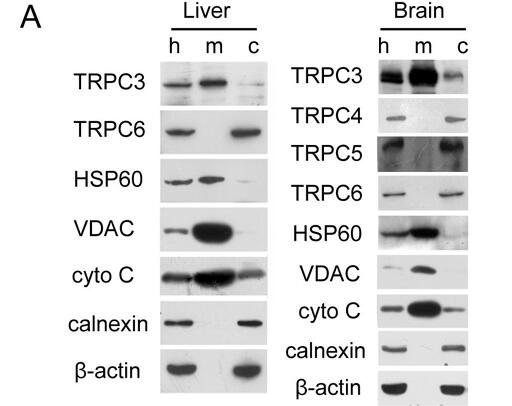
Dr. Cheng-Yu Li was invited to attend Sino-German Frontiers of Science Symposium 2013 and visit Max Planck Institute for Brain Research in Germany from May 19th to May 30th, 2013. During the syposium, Dr. Li gave an invited talk entitled "Optogenetics: a dream comes true for neuroscientists".